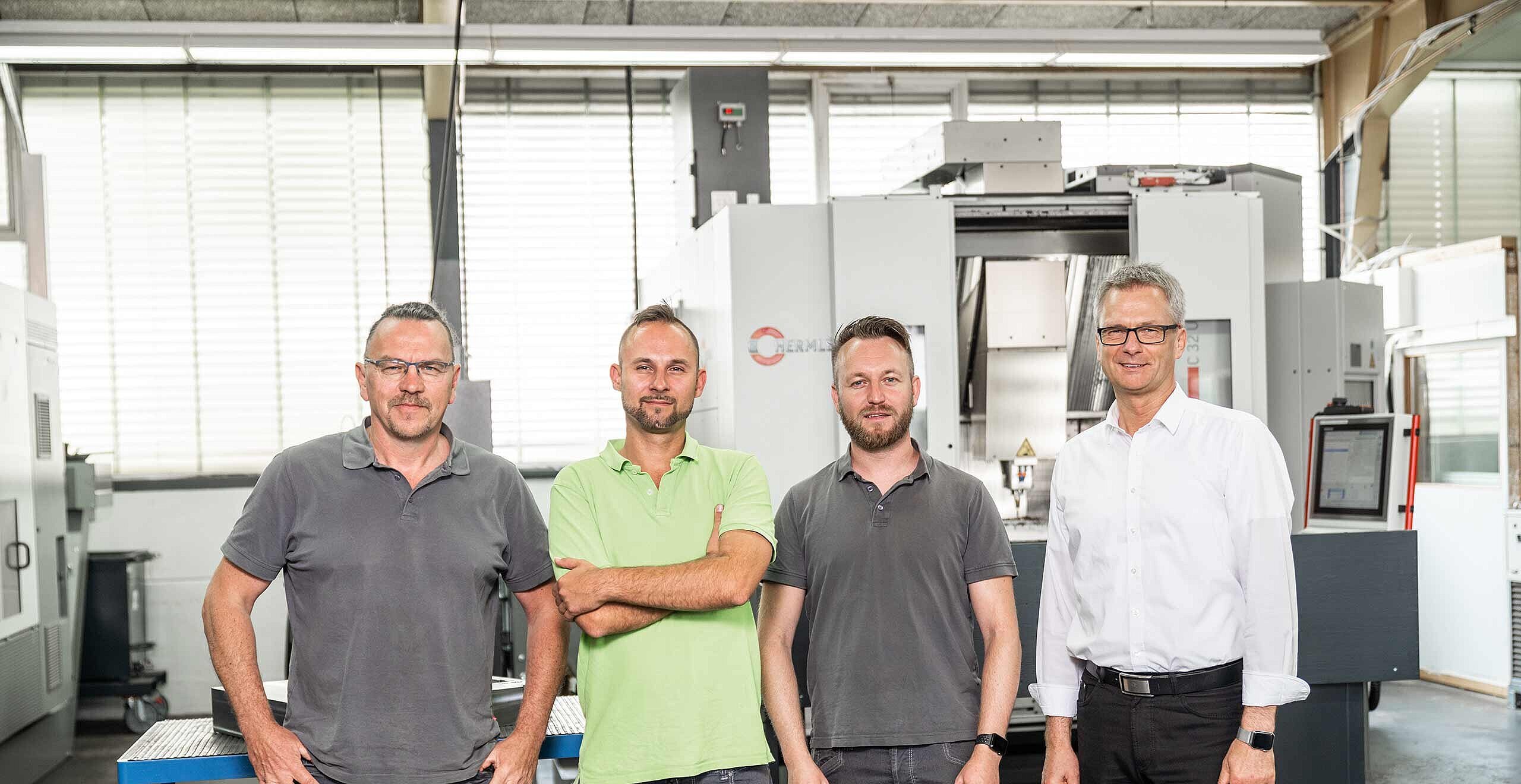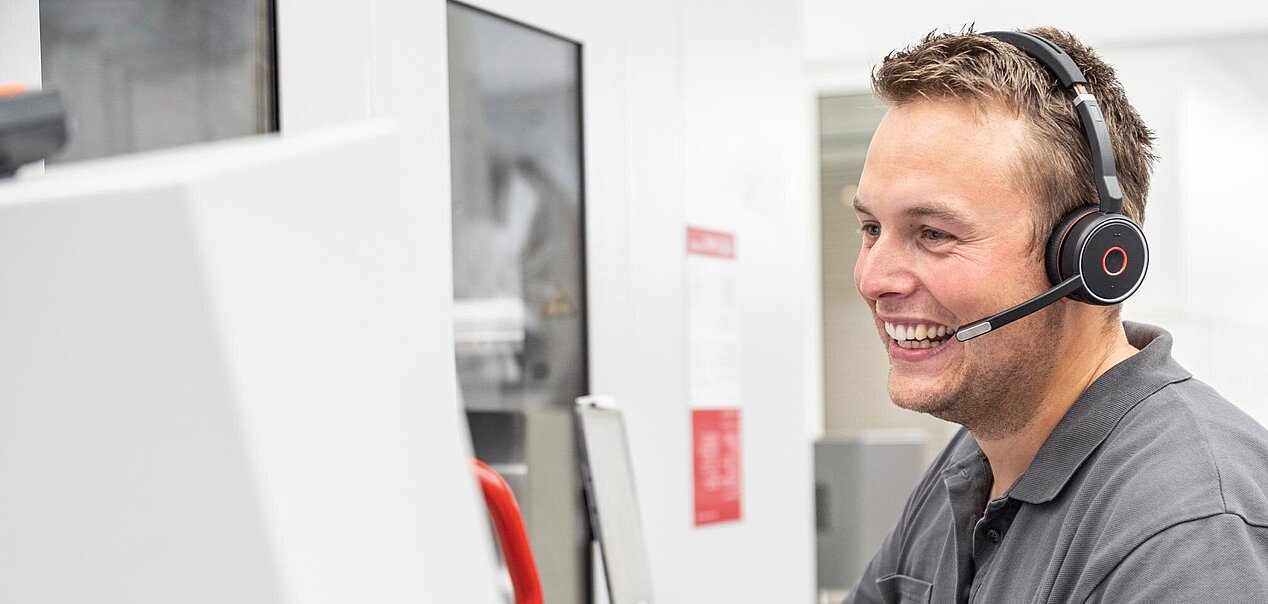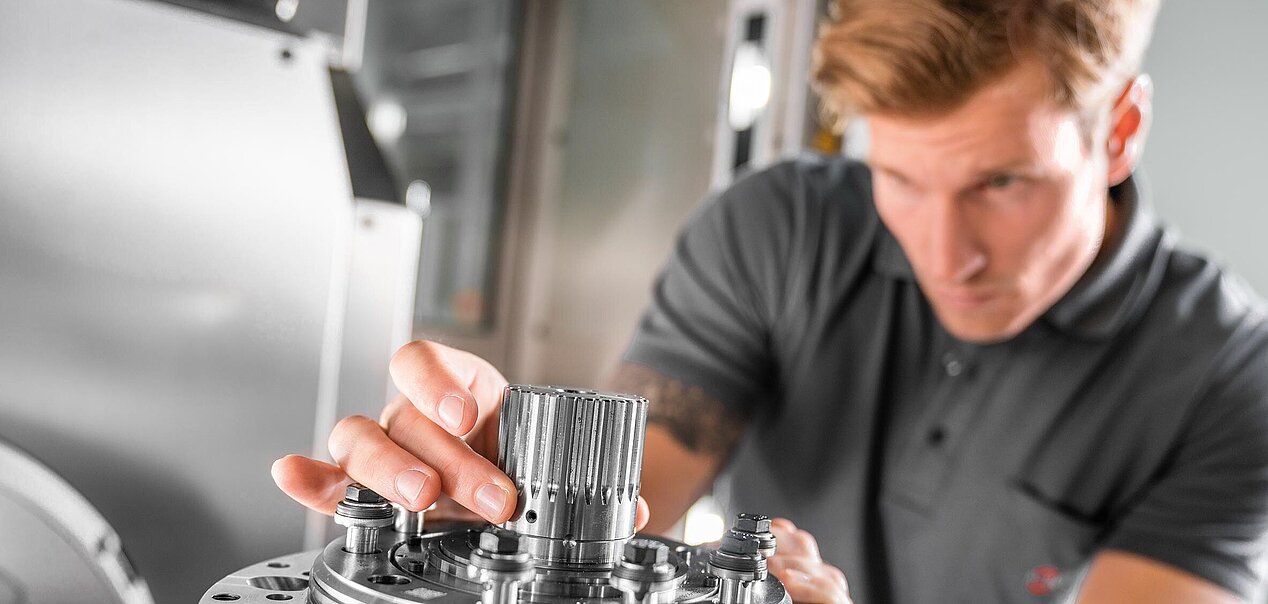Expanding capacity before reaching capacity
C 32 | Additional magazine | Kretzschmar & Silber | Contract manufacturing
Things have become quiet lately around automotive suppliers. As a result, Kretzschmar & Silber Fertigungstechnik GmbH has experienced an 80 per cent change in its customer base. Should the dormant clients become active again, the subcontractor has taken sufficient precautions – by investing in a C 32 U from Hermle during the Covid-19 lockdown. This provides more capacity besides making the company more flexible.
Kretzschmar & Silber Fertigungstechnik GmbH's outward appearance could be referred to as subdued and low key. Until recently, the company's website only read "Our website will soon be available", without any mention of the successful subcontractor's address. On the outside of the building, only an approximately A3-size sign featuring the initials K and S in green on an anthracite background indicates who is busy working behind the aluminium-framed glass doors. As Ulrich Silber later explains, this is not down to a particular reason or whatever but simply to a previous lack of necessity. He founded the company based in Knittlingen, about 20 km north of Pforzheim, with Thiemo Kretzschmar roughly four years ago.
"It's interesting what can actually develop from an idea sketched on the back of a beer mat," Thiemo Kretzschmar says during a cigarette break. Silber's former work colleague is referring to how the company came into existence: Back then, both founders were employed by toolmakers and were unable to find a satisfactory solution for the secure and precise clamping of components measuring over 400 millimetres. "Together we developed a clamping device and patented it," Ulrich Silber explains. At the same time, they rented space in the workshop that now belongs to them fully. The first machine, a C 250 U from Maschinenfabrik Berthold Hermle AG, is still located in the same spot and, as Silber says, "continues to work reliably". The two developers sold their idea last year but retained their traditional subcontracting practices.
Since 2017, Thiemo Kretzschmar and Ulrich Silber have been milling prototypes, individual parts and small volume orders for automotive suppliers, machine manufacturers and tool makers on five machining centres. In addition to one full-time employee, they have organised a pool of competent temporary staff, thereby enabling them to respond flexibly to every order situation.
-

In addition to moulding tools, Kretzschmar & Silber also manufactures individual parts and small volume orders for other industries, such as automotive engineering. -

The heat compensation of the C 32 U ensures precise milling results – even in non air conditioned workshops. -

When it comes to small volume production, employee Andreas Wegner appreciates the excellent accessibility offered by the 5-axis machining centre from Hermle. -
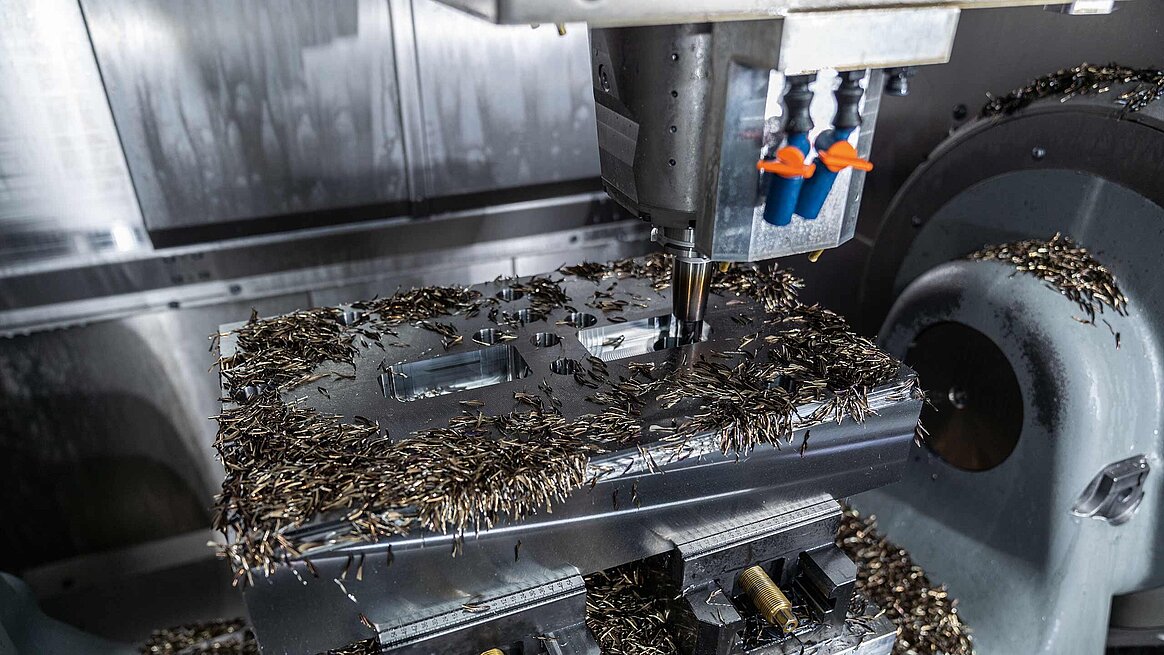
The C 32 U processes orders at speeds of up to 18,000 rpm. -
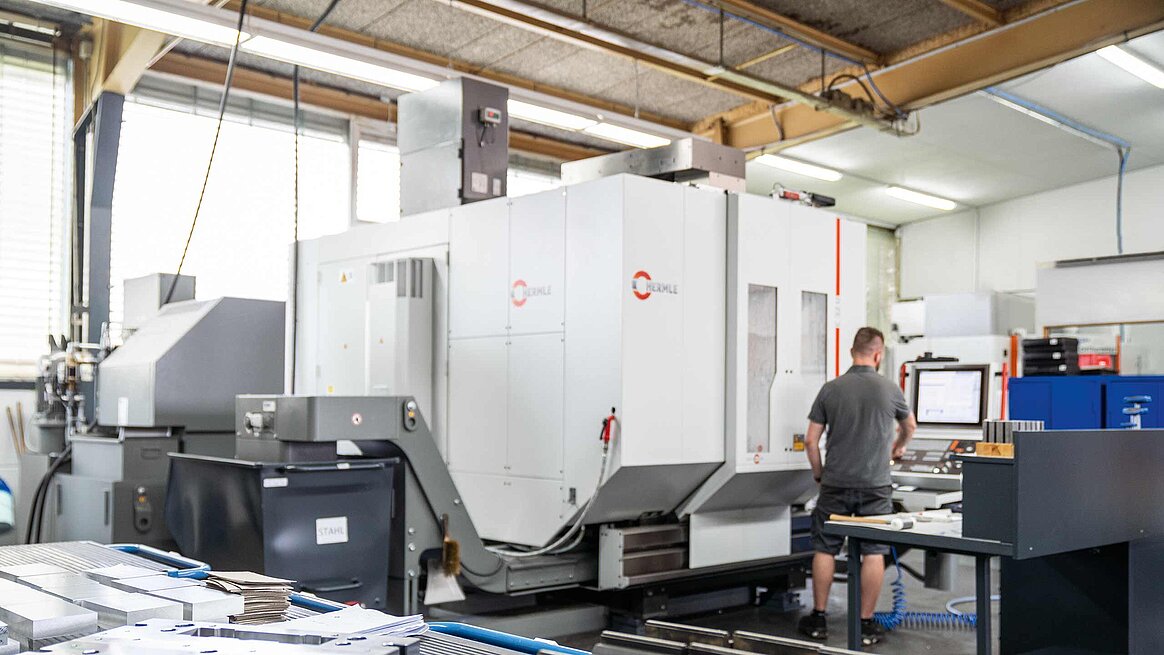
Kretzschmar & Silber receives most of the material from its clients. This makes the reliability of the Hermle machine all the more important. -
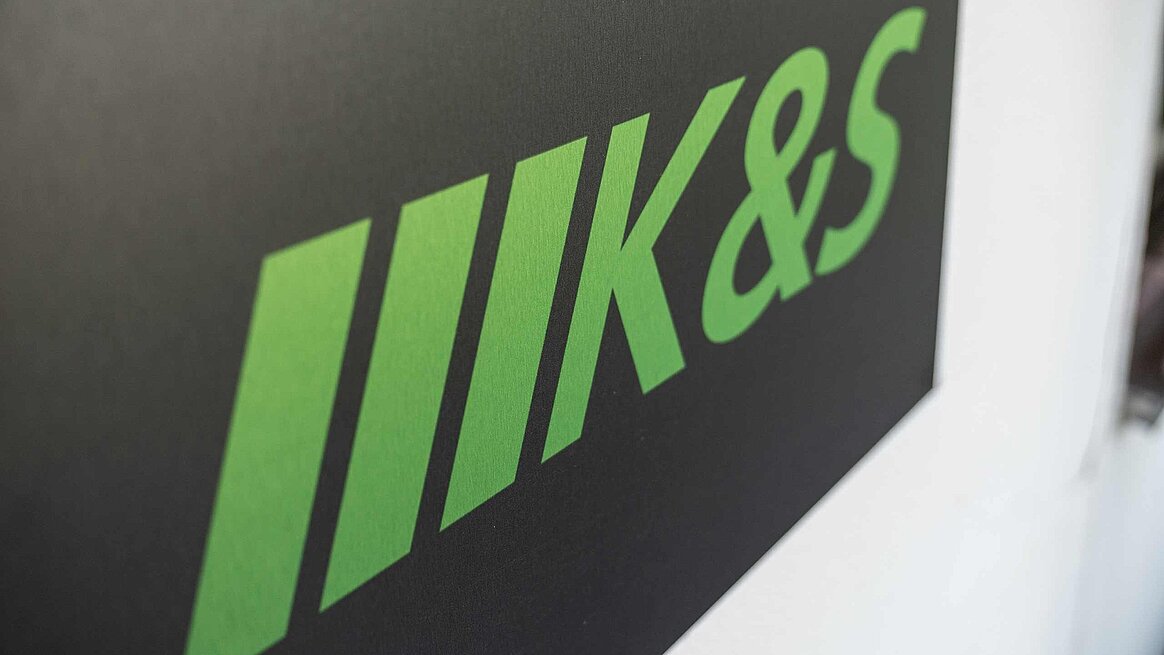
Discreet: The logo on the side of the building reveals little about the subcontractor. -

Having the right clamping device ready for every job is one of the challenges that Kretzschmar & Silber Fertigungstechnik faces every day.
Courage to take the first step
While Kretzschmar is the programming specialist, Silber manages new orders. He has networked extensively in the market and thus got to know a lot of companies along the way. Further, the two manufacturing engineers have built up quite a reputation for themselves. They have been fuelled and backed by their many years of experience in various industry sectors, including mould making, injection moulding and thermoforming: "We know how our customers' parts actually work. In addition, we're fast and flexible and have helped a few companies out of a tricky spot by producing high-quality parts for them at very short notice. This is only possible because we don't fully plan our capacity," Ulrich Silber explains. This approach is also a reason for the company's latest investment – a 5-axis machining centre of the High-Performance-Line from Hermle in Gosheim. The Covid-19 crisis fundamentally changed Kretzschmar & Silber's customer base. A lot less was heard from automotive suppliers. Instead, companies from the fields of medical technology and general mechanical engineering came to the fore. The new C 32 U is the answer to the question of how they plan to manage once their existing customers start ordering again regularly. "We bought the machine to be on the safe side, so to speak, to ensure we can meet future capacity demands," Silber says.
Yet another reason is the flexibility provided by the 5-axis milling machine. The materials being machined are just as diverse as the customers: From plastic and aluminium to various steels and carbides, everything can be found in the subcontractor's order books. "The daily challenge is to have the right clamping devices and tools available and to machine the materials effectively," Silber emphasises. "Therefore, the large tool magazine had a profound impact on our choice of machine." He ordered the C 32 U with an additional magazine, thus reducing set-up times by up to 50 per cent compared to the C 250 U. "Our parts are on the machine for 30 to 60 minutes on average. Cutting additional set-up times for tool changes is thus very important," the managing director explains. Thanks to the additional magazine, the manufacturing engineers have 250 magazine pockets at their disposal.
Expert service
Kretzschmar & Silber Fertigungstechnik GmbH uses the C 32 U to process a wide variety of orders effectively and efficiently. What the two machinists additionally appreciate is the reliability provided by the machine, as they are supplied with 80 per cent of the material required. "That means we don't usually have any replacement parts should something go wrong," Silber claims. Thanks to electrical heat compensation, the 5-axis milling centre works extremely precisely even in the non air conditioned workshop. Downtime – mostly due to tool breakage – is rare but cannot be avoided. "Hermle doesn't make a distinction between large and small customers. As a rule, though, service technicians arrive within 24 hours and always have a solution ready to put in place," Silber says full of praise for Hermle. The issue of competence is particularly important to him. If it is missing, there are consequences; something he often sees in other companies: "Even the best machine is useless without the appropriate know-how." As a subcontractor, he has to work effectively and is able to quickly see where there is a need for optimisation – both for himself and his customers. "A complicated milling strategy or tolerances that are too tight quickly result in a loss of earnings," he remarks and makes his clients aware of this fact. Ulrich Silber shows them how they can machine their parts more effectively and efficiently. He is well aware of the fact that this could result in contracts being lost – and has utilised it to develop a business idea: "Process consulting is a second pillar of the business that we're constantly expanding."
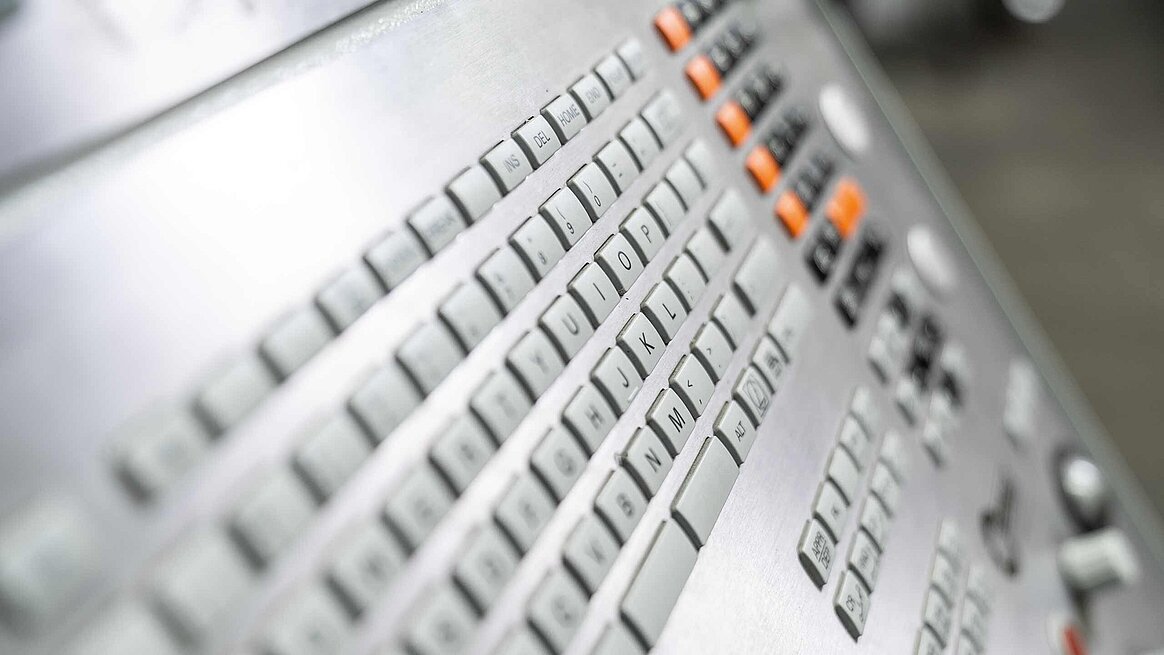
A big "yes but" to automation
Even though flexibility plays a major role at Kretzschmar & Silber Fertigungstechnik GmbH, the managing directors decided against automation for the C 32 U: "The HS flex system doesn't suit our needs, as we machine components from 10 to 900 millimetres." And at the time, the new large handling system HS flex heavy didn't exist. In principle, Silber is not against investing in an automation system: Third-party automation has already been adapted to the C 250 U. "When we purchased the system, the HS flex system was not yet available, so we decided on this solution," the managing director adds. The two founders soon plan to modernise the workshop – part of it is to be air conditioned for the use of measuring machines – and to expand the range of their consulting services.
